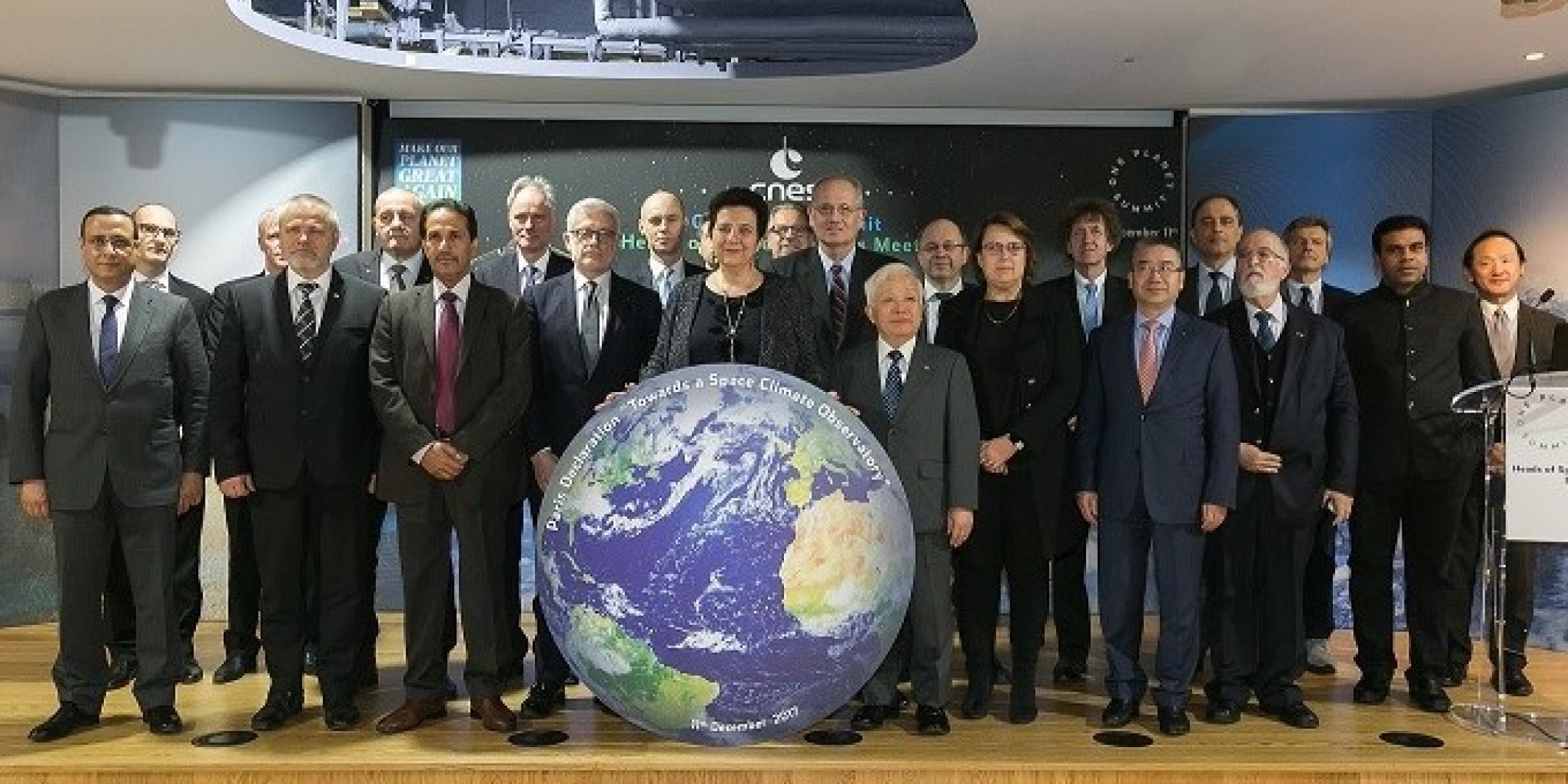On the eve of the One Planet Summit organized in Paris at the initiative of President Emmanuel Macron, the heads of the world’s space agencies met today at https://fscience-old.originis.fr/wp-content/uploads/2023/06/GLOC_Oslo_Norway_S2_27juillet2022_web-2-1.jpg Head Office. At this meeting focused on climate monitoring from space, three round tables addressed the topics of greenhouse gas monitoring, water resource management and the use of satellites in natural disaster management. The meeting led to the adoption of the Paris Declaration, which proposes to set up a Space Climate Observatory (SCO) to pool climate data acquired from space and make them readily available to the international scientific community.
Tackling climate change is a top priority for France to which the space sector is making an active contribution. Satellites are vital tools for studying and gaining new insights into climate change, in order to mitigate its effects and help societies devise coping strategies. Out of the 50 essential climate variables (ECVs) defined by the Global Climate Observing System (GCOS), 26 can only be measured from space. This is why cooperation between the world’s space agencies is key to leveraging individual efforts, as set out in the Mexico Declaration on climate and natural disasters (2015), the New Delhi Declaration on greenhouse gases (2016) and the Marrakesh Declaration on the water cycle (2016).
After the meeting, https://fscience-old.originis.fr/wp-content/uploads/2023/06/GLOC_Oslo_Norway_S2_27juillet2022_web-2-1.jpg President Jean-Yves Le Gall commented: “Tackling climate change is the main challenge facing us in the 21st century. To meet this challenge, our societies must work together to contain global warming well below two degrees with respect to pre-industrial levels, and to win the battle to save our planet. That’s why https://fscience-old.originis.fr/wp-content/uploads/2023/06/GLOC_Oslo_Norway_S2_27juillet2022_web-2-1.jpg has made climate action its priority. The Paris Declaration we have just adopted proposes to set up a Space Climate Observatory that will act as a hub between space agencies and the international scientific community. Two years after the adoption of the Paris Agreement at COP21, I’m glad to see that climate issues are still at the centre of debate thanks to the ambition and determination of President Macron, who has been the prime mover behind the One Planet Summit being held tomorrow here in Paris.”
Also present at this event, Frédérique Vidal, Minister for Higher Education, Research and Innovation, said: “I hail this strong commitment from the world’s space community and it has my wholehearted support. A historic political agreement was sealed at the COP21 conference in Paris in 2015. It was now our common duty to implement this agreement, making full use of science and space technologies. The new Space Climate Observatory is set to contribute directly to that goal.”









